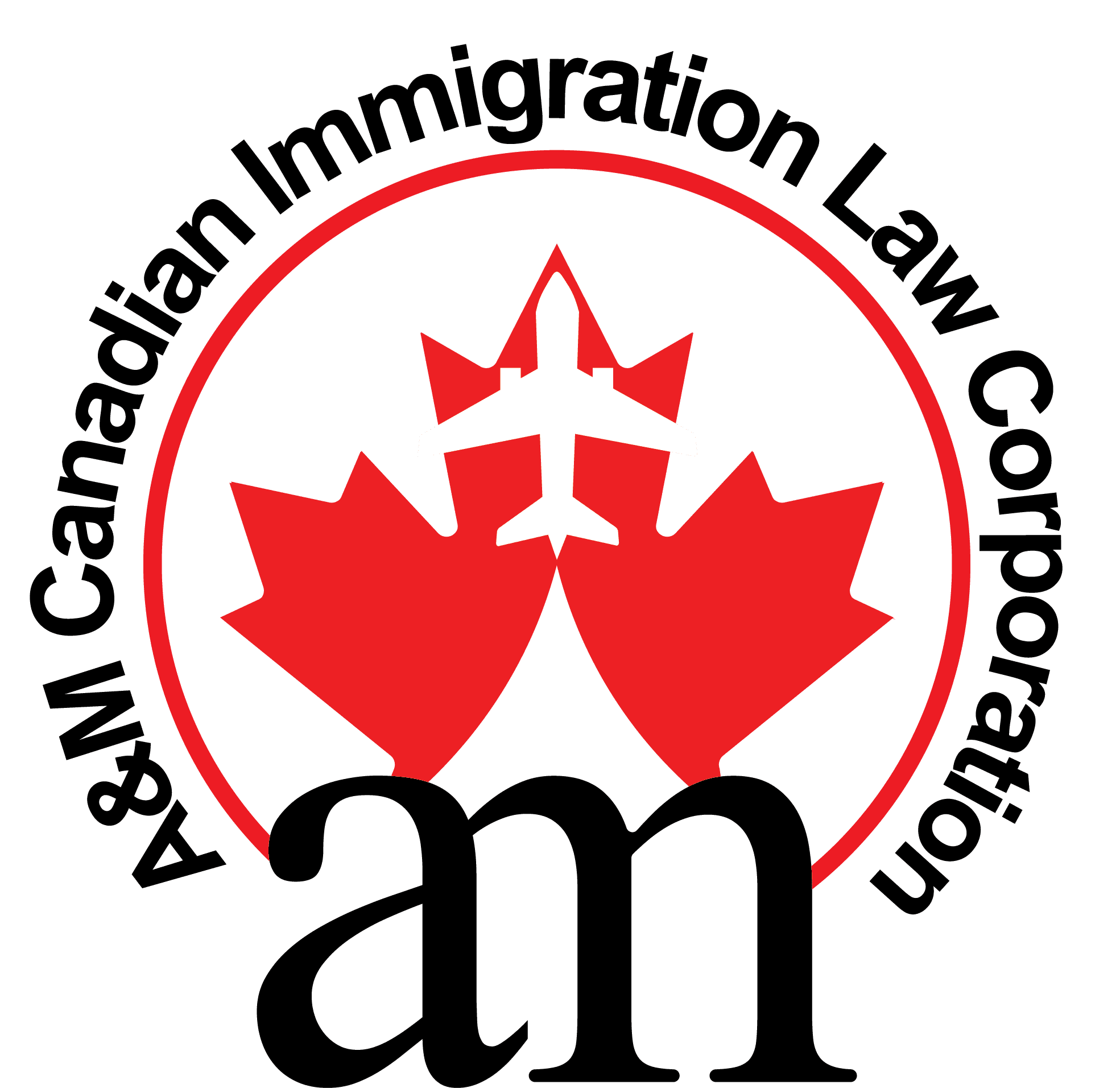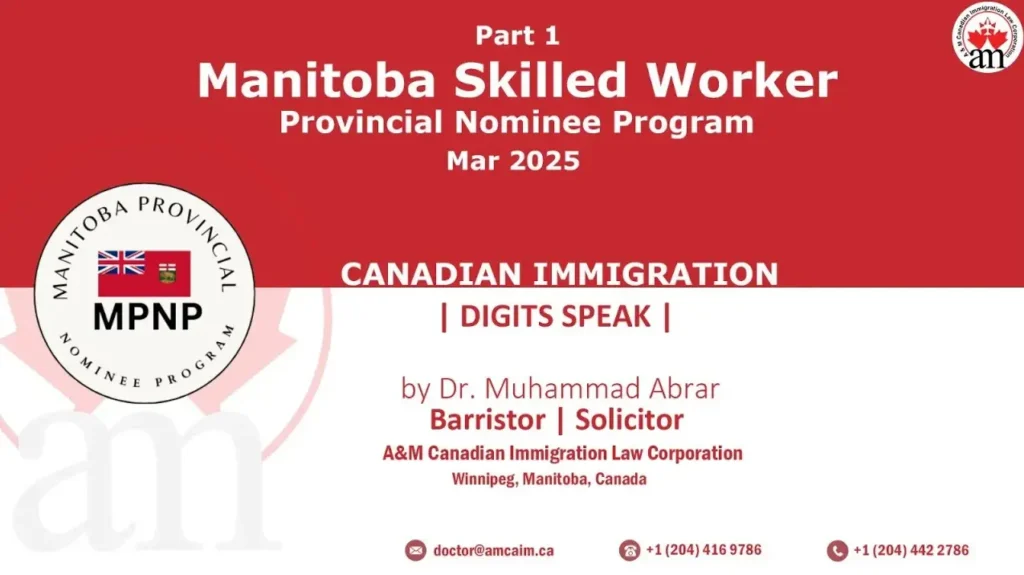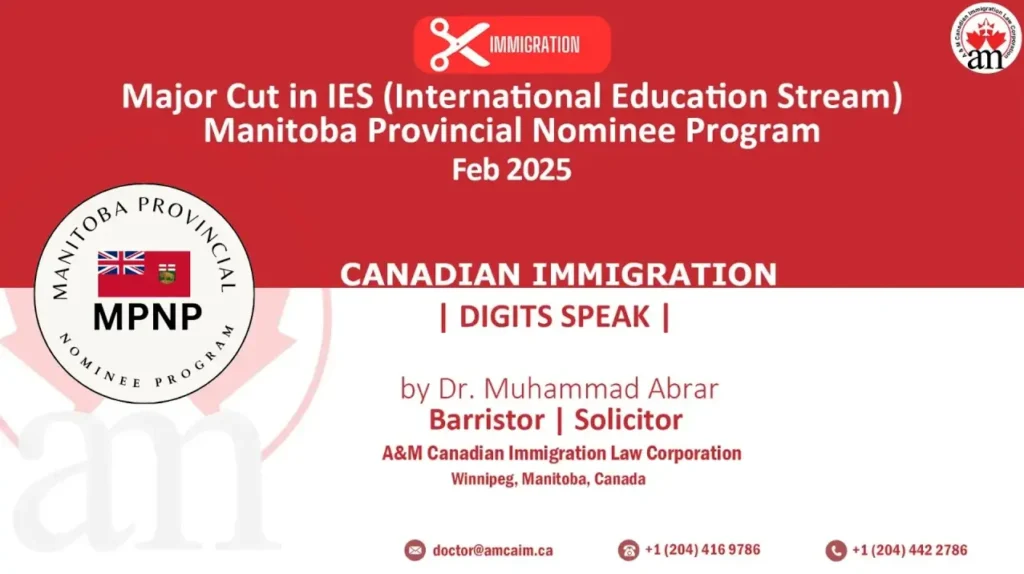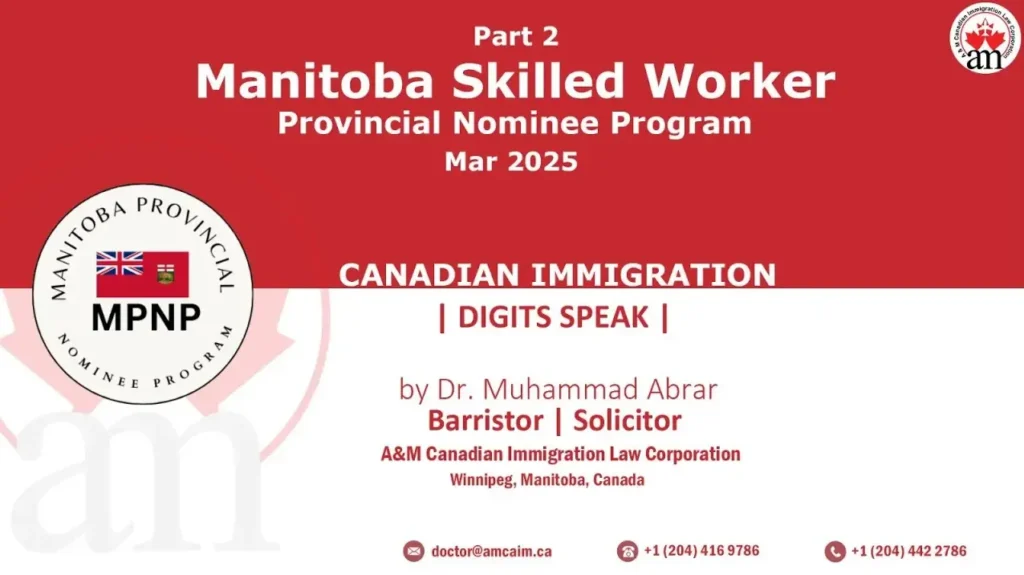
Manitoba Skilled Worker-Provincial Nominee Program (MPNP) Trends & Prediction: Part 2
https://youtu.be/c0nu-HAf12Y?si=sQpQhzWi2MQXI63h With Manitoba’s Provincial Nominee Program (MPNP) facing major changes in 2025, understanding each Skilled Worker stream is more important than ever. If you’re applying blindly, you’re setting yourself up for disappointment. Skilled Worker Manitoba: This year, Manitoba’s nomination quota has been slashed from 9,500 to just 4,750—that’s a 50% cut. And yes, scores are going up across the board. Skilled Workers in Manitoba is one of the most popular streams for applicants already working in Manitoba. In 2024, the selected applicant’s score Ranged from 823 – 872. This year, the score will continue to rise due to reduced quotas and increased competition. Close Relative in Manitoba This stream is for applicants with close family ties (siblings, parents, etc.) living in Manitoba. In 2024, the Score started from 607 and ended at 840. We are expecting a tighter cutoff, especially if demand continues to grow. Manitoba Graduates Graduates of Manitoba post-secondary institutions, often on Post-Graduation Work Permits (PGWP), fall into this stream. Last year, the score Ranged from 772 to 845. And in 2 draws of 2025, the scores were 838 and 844. Occupation-Specific Selection This stream was originally wide open for anyone in a listed occupation, like healthcare workers, transport drivers, and tradespeople. Early in 2024, all qualifying applicants under targeted NOC codes were invited and later, the selection became more competitive, based on both occupation +score. At A&M Canadian Immigration Law Corporation, we specialize in helping applicants understand exactly where they stand and how to build a strategy that works. ✔️ In-depth analysis of your eligibility ✔️ Strategic advice based on real-time immigration data ✔️ We are the only firm providing first Free consultation Your Manitoba immigration success isn’t just about applying—it’s about applying right. We’ll help you make sense of the numbers—and make a smart move toward your Canadian dream with our expert team members. #CanadianImmigration #ImmigrationToCanada #MPNP #CanadaPR #IRCCUpdates #WinnipegImmigrationLawyer #ImmigrationLawyerWinnipeg #BestImmigrationLawFirmInWinnipeg #WinnipegLawFirm #ManitobaImmigration #ImmigrationHelpWinnipeg #ImmigrationExpertsCanada #TrustedImmigrationLawyers #ImmigrationInsights#ImmigrationAnalysis #ImmigrationNewsCanada #ImmigrationStatistics #ImmigrationTips
